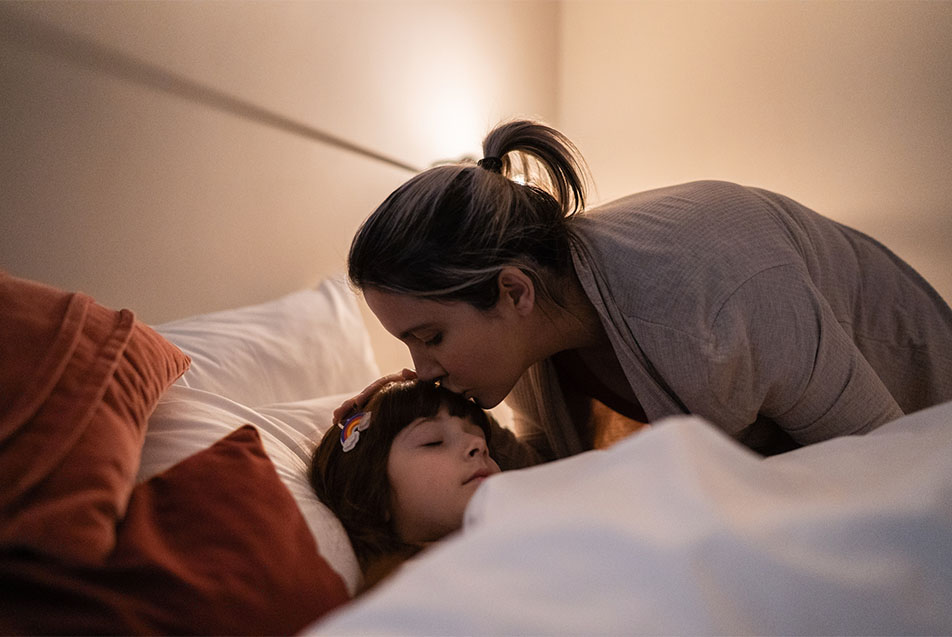
This post was written based on an interview with Greshma Susan George, MD, PPG – Pediatrics.
Parents all over the area are picking up supplies, getting kids registered and taking care of back-to-school business. An important part of that preparation is getting children back on their normal sleep schedule.
Sleep recommendations
While the amount of sleep recommended for a child varies by age, the general recommendation for school-age children is 8-10 hours. If they get less than 7 hours, we start seeing the negative consequences that come with lost sleep.
School sleep schedule
If your child got off of their normal school sleep schedule during summer vacation, it’s important that you don’t wait until the last minute to start getting back on track. It’s good to try and resume the schoolyear routine 1-2 weeks prior to the first day of school. It takes time for children to reestablish healthy nighttime habits.
Risks of sleep loss
If a student isn’t getting the recommended 8-10 hours of sleep by the time school resumes, parents can expect to see the effects in their child. It can impact their academic performance, social interactions and behavior. If you are noticing disruptive changes in your child’s demeanor, or a failure to adjust to the school year, it could very well be their sleep schedule.
Sleep is like a mini vacation. Every night our body is preparing for the next day. While we sleep, we make good memories and consolidate memories. In the short term, without sleep, we can see negative changes in our coordination and memory. It can also lead to aggressive behavior, hyperactivity or inactivity. A lack of sleep can make it tough to perform at the optimal level in classes as well.
As students get older and go into middle and high school, it becomes even more important to enforce a healthy sleep routine. The brain is really forming and developing during the teen years, and a sleep deficit can cause a variety of negative effects. The risk of unintentional injuries and accidents increases when students operate motor vehicles or play sports without adequate rest.
In addition to these short-term effects, a lack of sleep has long-term consequences as well. Poor sleep has a direct correlation to several chronic diseases, including heart disease and events, obesity and type 2 diabetes. It’s also easier to get infections without a good routine, as sleep increases our immunity.
Screens and sleep
Students should be limiting their exposure to blue light and getting off of all technology devices 1 – 1 ½ hours before they go to sleep. This means powering down smartphones, tablets, computers and televisions. This becomes more challenging as students get older and acquire more devices, but it’s very important to limit screen time prior to sleep.
Other healthy sleep habits
- Create an environment that promotes sleep; one that is dark, cool and quiet
- Avoid napping
- Exercise earlier in the day
- Avoid sugar and caffeine later in the day
- Journal or meditate before going to bed to clear your mind
Sleep isn’t just about feeling tired and then getting rest. It’s about forming a healthy routine, putting the right habits in place and sticking to a beneficial schedule. The benefits extend far beyond just feeling good. Sleep is a vital part of your overall well-being. One of the best things parents can do to help their students this school year is make sure they are well-rested and ready to learn!



